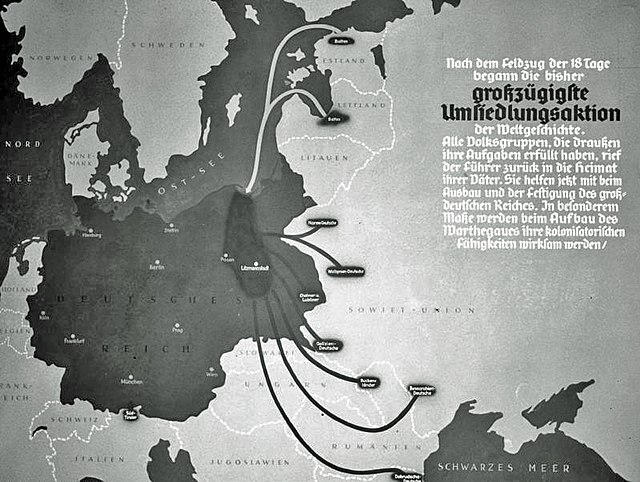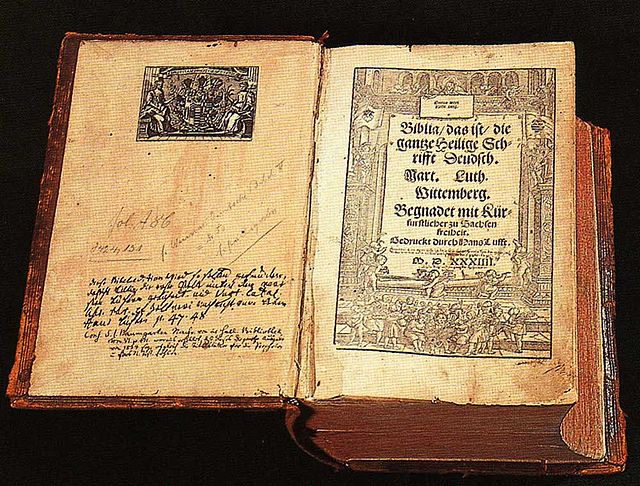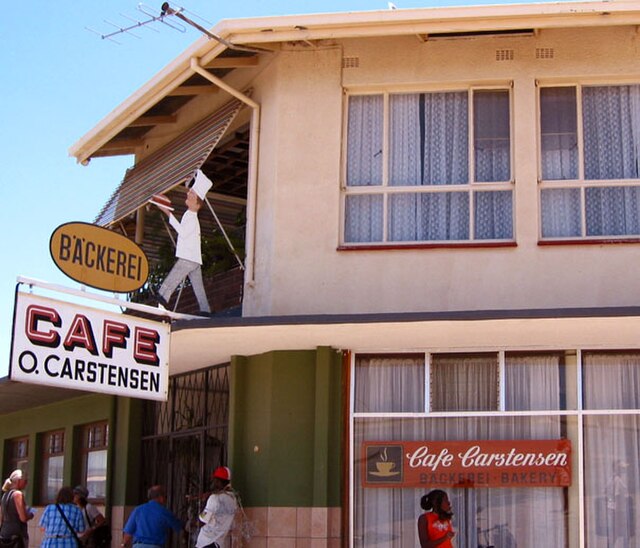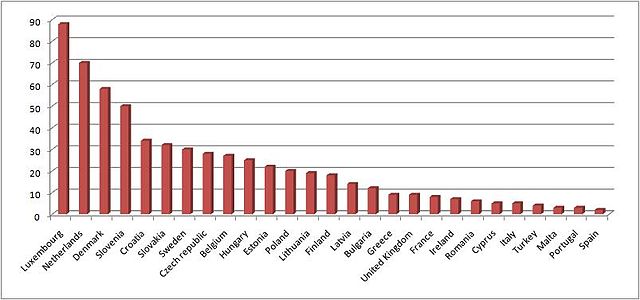Germanisation, or Germanization, is the spread of the German language, people, and culture. It was a central idea of German conservative thought in the 19th and the 20th centuries, when conservatism and ethnic nationalism went hand in hand. In linguistics, Germanisation of non-German languages also occurs when they adopt many German words.
Polish names of Silesian cities from a Prussian official document published in Berlin in 1750 during the Silesian Wars
Origin of German colonisers in annexed Polish territories. Was set in action "Heim ins Reich".
Adolf Hitler on the Old Bridge (Stari most) in Maribor, Yugoslavia in 1941, now Slovenia
German is a West Germanic language in the Indo-European language family, mainly spoken in Western and Central Europe. It is the most widely spoken and official or co-official language in Germany, Austria, Switzerland, Liechtenstein, and the Italian province of South Tyrol. It is also an official language of Luxembourg and Belgium, as well as a recognized national language in Namibia. There further exist notable German-speaking communities in France (Alsace), the Czech Republic, Poland, Slovakia, Denmark, Romania and Hungary (Sopron).
Modern High German translation of the Christian Bible by the Protestant reformer Martin Luther (1534). The widespread popularity of the Bible translated into High German by Luther helped establish modern Standard German.
Bilingual German-English sign at a bakery in Namibia, where German is a national language
Self-reported knowledge of German as a foreign language in the EU member states (+Turkey and UK), in per cent of the adult population (+15), 2005
Swiss German restaurant sign in Andermatt: "Chuchichäschtli", in Standard German "Küchenkästlein"







